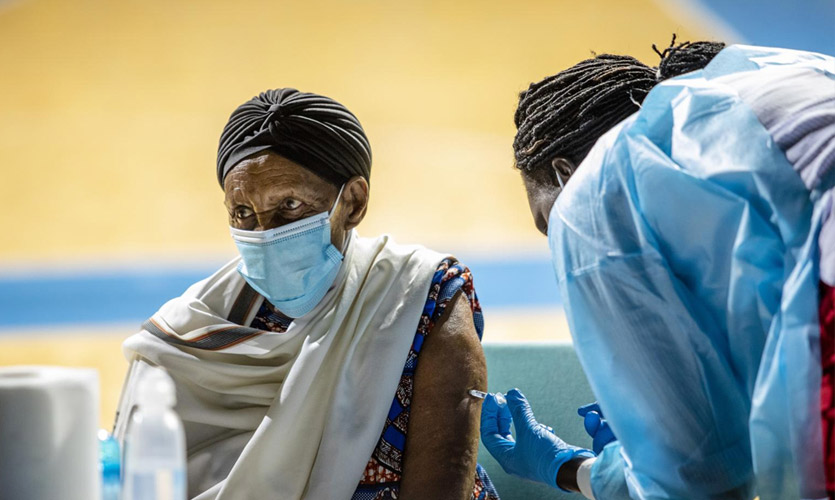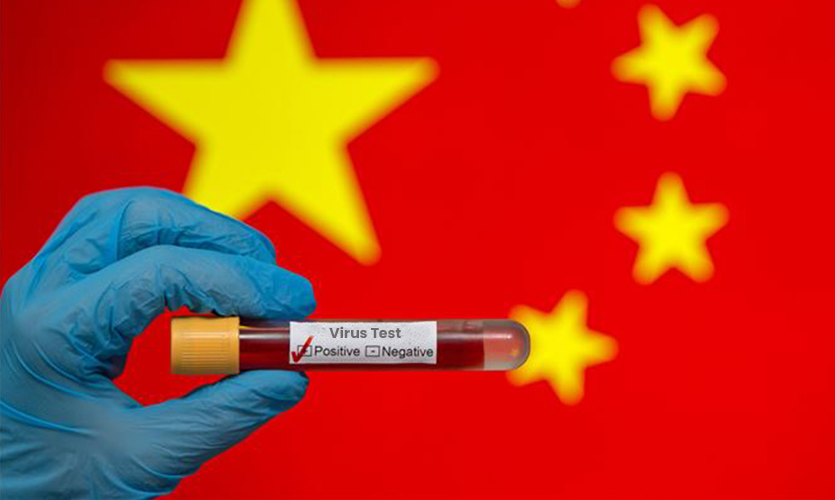The world has seen the novel coronavirus mutate faster than expected since the offset of the pandemic in 2019, resulting in a spike in the number of cases during the second wave. A recent investigation has uncovered a troubling example of COVID-related mutation. An HIV-positive woman was infected for a period of 216 days, during which the virus mutated at least 30 times. The research is still being reviewed.
According to the report in the medical journal medRxiv, the 36-year-old lady was diagnosed with HIV back in 2006 and her immune system has been weakenening consistently over time. After contracting COVID-19 in September 2020, the virus accumulated 13 mutations to the spike protein, which is responsible for the virus evading the immune response. The study also revealed 19 additional mutations.
Some of these mutations have been found to be extensions of variations of concern, such as the E484K mutation, which is part of the Alpha variation B.1.1.7 first reported in the UK, and the N510Y mutation, which is part of the Beta variant B.1.351 that was first seen in South Africa.
The research gives insight into how unpredictable coronavirus may become in hosts with other long-term illnesses that reduce the immune system’s capacity to combat the virus.
“While most people effectively clear Sars-CoV-2, there are several reports of prolonged infection in immunosuppressed individuals. We present a case of prolonged infection of greater than 6 months with the shedding of high titter SARS-CoV-2 in an individual with advanced HIV and antiretroviral treatment failure. Through whole-genome sequencing at multiple time points, we demonstrate the early emergence of the E484K substitution associated with escape from neutralizing antibodies, followed by other escape mutations and the N501Y substitution found in most variants of concern,” noted the study.
According to the study, the woman’s mutations were not caused by the COVID-19 treatments she received. “Despite a short clinical illness of moderate severity, SARS-CoV-2 PCR positivity persisted up to 216 days. We demonstrate significant shifts in the virus population over that time, involving multiple mutations at key neutralizing antibody epitopes in the spike RBD and N terminal domain (NTD). Unlike many of the other reported cases, virus evolution was not driven by the receipt of immune-based therapies (convalescent plasma or monoclonal antibodies),” added the study.
This means that the virus may evolve numerous times in a single host and continue to avoid the immunity defence systems in people who have other significant conditions. The paper does not mention if these mutated versions of the virus can be transmitted to others.
Although there is a minimal indication that HIV-infected persons are more likely to contract COVID-19 and incur serious medical repercussions, experts believe that if more such cases are discovered, persons with advanced HIV might “become a factory of variations for the entire world” as persons with HIV are more likely than others to develop major side effects from the infection, with a mortality rate of more than 2.75 times greater.
Tulio de Oliveira, a geneticist at the University of KwaZulu-Natal in Durban and the study’s author, told the Los Angeles Times that immunosuppressed people may be able to carry the COVID-19 virus for a longer period than others. In the woman’s case, de Oliveira stated that she experienced relatively minor symptoms in the first few days.
The study also advocated for more testing and treatment for those with undiagnosed HIV since it “would reduce death from HIV, limit HIV transmission, and therefore minimise the risk of producing new Covid variations that may trigger further waves of infections.”
Read more about how India is preparing to inoculate children against COVID-19.
According to reports, the impact of HIV on the COVID mortality rate was less than predicted and far less than that of other co-morbidities such as diabetes. In South Africa alone, around 7.8 million individuals are infected with HIV. The World Health Organization (WHO) estimates the worldwide number to be around 38 million.
Further research indicating a strong correlation between mutation and the spread of coronavirus in HIV patients would be concerning for India, which has over 1 million individuals with untreated HIV infections. India is already battling the second wave and its destructive impacts including a record highest single-day spike in the world, also registering the highest number of COVID deaths in a day.










